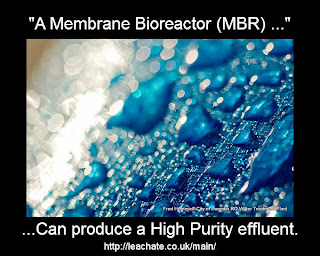So you desire to understand what this really is? You would be surprised how often individuals inquire about that question by seeking the world wide web. That's the reason we now have composed this article to describe what family or friends will feel you unaware or even ridiculous for inquiring the things they might think would have been a foolish issue.
In principle, a membrane bioreactor combines biological treatment with a separation process using microfiltration membranes. An advantage of the net is that you can ask these queries about just about any topic, and always with no stress that your buddies think of what you ought really to already know about!
In principle, a membrane bioreactor combines biological treatment with a separation process using microfiltration membranes. An advantage of the net is that you can ask these queries about just about any topic, and always with no stress that your buddies think of what you ought really to already know about!
So, I want to now get on with answering your problem by what a membrane bioreactor or "MBR" really is.
It is a sophisticated water treatment system commonly used for strong organic effluent treatment as in for example the aerobic treatment of landfill leachate.
First, a Membrane Bioreactor consists of a reactor tank and a microfiltration unit, which can be defined as: the use of membranes to allow the almost complete elimination of suspended solids from the effluent, with the conservation of all bacteria in the reactor while also removing BOD and COD and ammoniacal nitrogen concentration which is largely converted to the nitrate form in solution.
To make that clearer, here is a list of instances in which a membrane bioreactor might be used, as follows:
- It is also an MBR when referred to by many people, and also some will include an
- MBR in a Reverse Osmosis Plant when treating landfill leachate.
So let's attempt to simplify items.
These can be classified into the following types of MBR Plant,as follows:
- MBR with Reverse Osmosis,
- MBR with Activated Carbon,
- MBR with Nanofiltration etc.
The main of those is:
MBR with Reverse Osmosis
Their unique characteristic is the fact that in the reactor, the micro-organisms which are mostly bacteria transform dissolved polluted matter into biomass, and NH4 nitrogen (“ammonia”) into nitrate. In this way biodegradable organic contaminants are eliminated by the bioreactor as well as a number of metals which are oxidized into mostly insoluble compounds. The suspended solids are then eliminated from the flow by the microfiltration membrane.
The key issue, to consider about membrane filtration, is that it allows the retention of non-soluble molecules having a high molecular weight and in that way increases their residence/retention time and also as a result increases the extent to which of biodegradation occurs inside the biological reactor (bioreactor).
Now that you have see this article you should know far more about the use of membrane bioreactors or "MBRs" for leachate treatment, and this will, we hope have made it easier for, you.
Using this method of this research you have applied the services of the net intelligently to answer a really distinct query which can be important to you at this time resolve.
Now reader, you can instantly compliment yourself for your learning and by educating yourself, most of us need to obtain increased good results in your lifestyles, so we surely think that you're going to experience that as well
Uncover how you can use the MBR with Reverse Osmosis treatment system by visiting the membrane bioeractors page on the website at leachate.co.uk/main/leachate-treatment/how-a-membrane-bioreactor-is-used-to-treat-landfill-leachate/.


